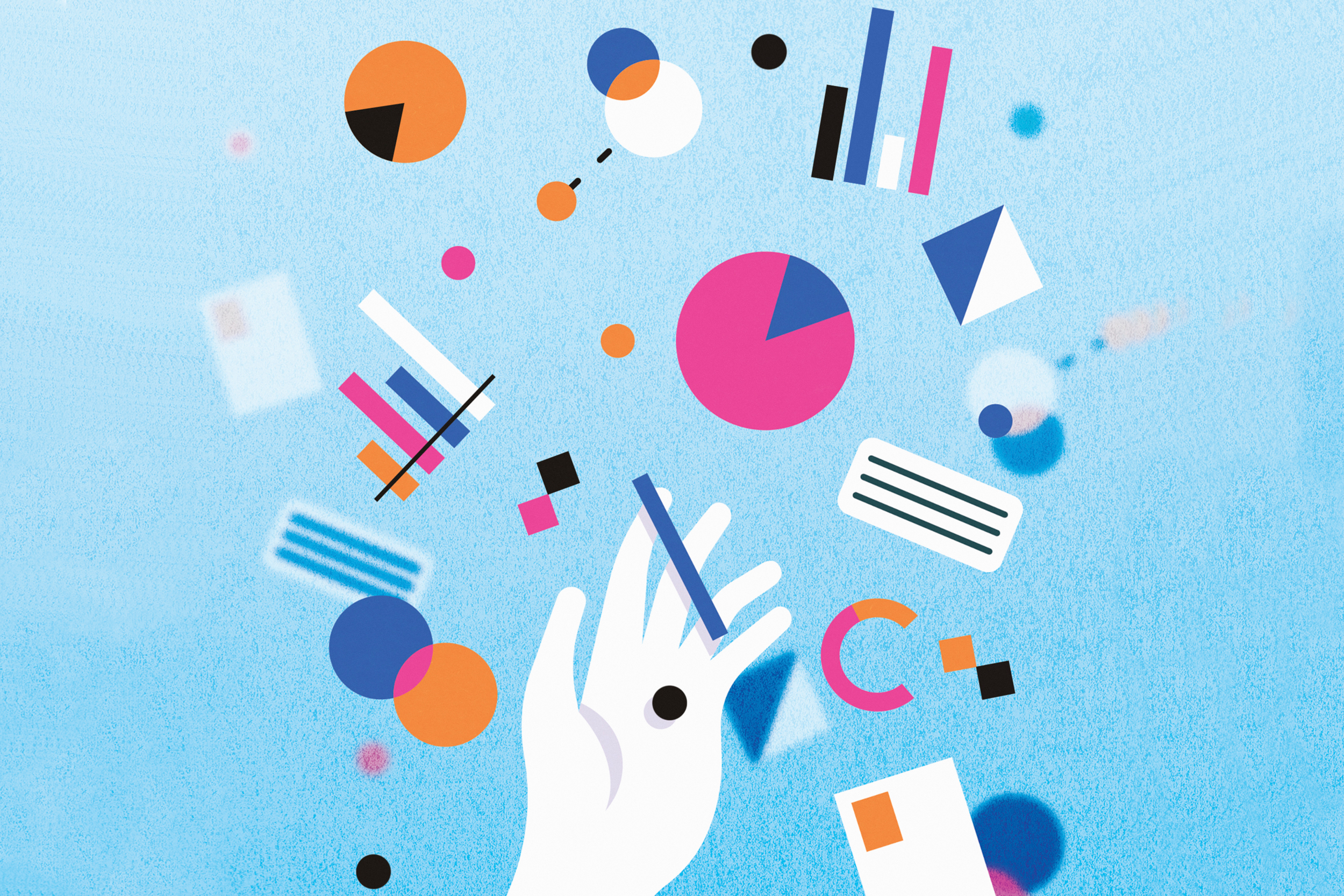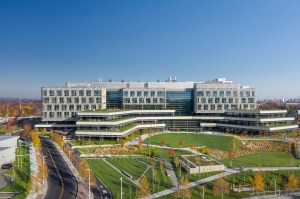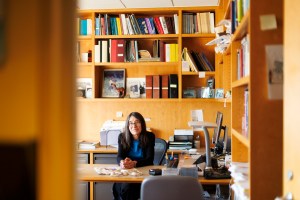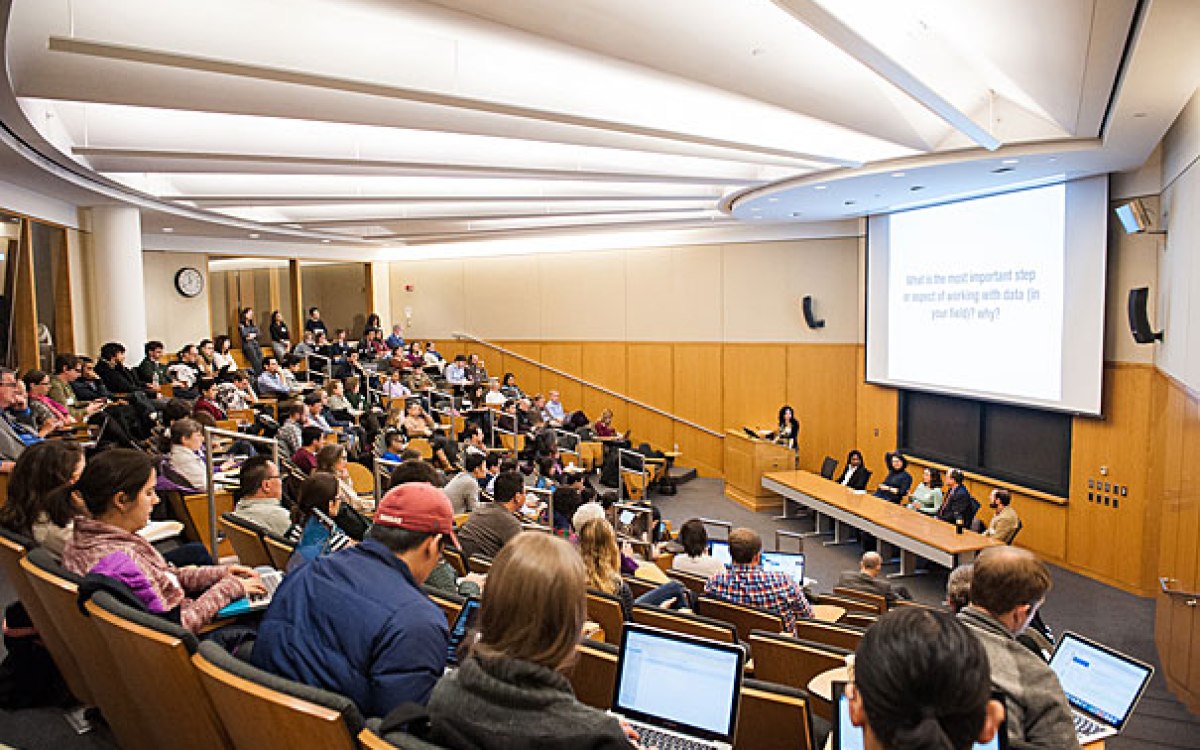
Illustration by James Boast
Workshops explore data and computational science
Two training programs showcase the breadth of work at Harvard
Data is one of the most powerful tools any organization or business can utilize to make decisions, demonstrate results, or create computational breakthroughs, such as algorithms that can predict medical conditions in patients.
As the demands around data and computational science expand, so does the need for a community of experts well-versed in implementing best practices and carrying out innovations that arise from research.
To develop such skills and knowledge in practitioners, the Institute for Applied Computational Science (IACS) at Harvard’s John A. Paulson School of Engineering and Applied Sciences (SEAS) and the Institute for Quantitative Social Science (IQSS) are each hosting sessions from Jan. 22 to 25 to explore data and computational science work being done at Harvard and in the community.
DataFest 2019, a two-day workshop from Jan. 22 to 23 at the Center for Government and International Studies, will showcase the wide array of data science work from across the University. Hosted by the IQSS, the workshop will include lectures and sessions focused on data concepts and developing skills for managing, analyzing, and visualizing data.
“The main goals are for people to come away with a much clearer conception of the data lifecycle, from getting data for their research to analyzing it and sharing it with others, and to acquire some of the skills needed to implement best practices for handling data at each stage of the lifecycle,” said Mercè Crosas, Harvard research data management officer at the Office of Vice Provost for Research and chief data science and technology officer at IQSS.
The DataFest speakers run the gamut from experts in the physical and biological sciences to specialists in the humanities. There are two types of sessions at the conference: faculty members walking through data-analysis-use cases, and research facilitators presenting workshops on data management, visualization, and analysis.
“Providing support and training on working with data requires the collaboration of many groups across Harvard —including the Harvard Library, Harvard University Information Technology, the Office of Vice Provost for Research, research computing and data science teams from the Faculty of Arts and Sciences, Harvard Medical School, Harvard Business School, IQSS, the Chan School bioinformatics core, and the digital humanities support group,” Crosas said. “The unique value of DataFest is that it brings together the expertise and services of all these groups to offer practical data workshops for the entire Harvard community.”
Presenters will include Jeff Lichtman, the Jeremy R. Knowles Professor of Molecular and Cellular Biology, reviewing a case study looking at neural connections in the brain and using his data to visualize it; and Jill Lepore, the David Woods Kemper ’41 Professor of American History, reporting on using qualitative data in history research. Workshops will include techniques to scrape data from any website, to manage sensitive data, and to learn how the European Union’s new data-protection law can affect researchers.
Workshops will include techniques to scrape data from any website, to manage sensitive data, and to learn how the European Union’s new data-protection law can affect researchers.
More like this
ComputeFest 2019, hosted by IACS from Jan. 22 to 25 at SEAS, brings together researchers, faculty, students, and professionals in computational science, engineering, and data science to discuss the newest thinking and approaches around machine learning, a subset of artificial intelligence that uses algorithms to help computer programs learn tasks they were not programmed to do.
Created in 2011, ComputeFest includes a symposium, usually on a broad topic, and workshops that dive deep into the year’s theme. This year’s focus, “Data Science at the Frontier of Discovery: Machine Learning in the Physical World,” shows significant developments in computational power, design, and analysis, said Catherine Chute, assistant dean for professional programs and executive director at IACS.
“Our natural world is more observed than ever before,” she said. “Seismic probes and satellites continuously monitor the earth and sky; high-powered telescopes and microscopes map the farthest star and smallest molecule. Increasingly, the physical sciences are turning to machine learning to sift through, analyze, and make predictions from big data. The symposium will help us think about questions like: Can we predict natural catastrophes with greater precision? Can we use machine learning for the detection of gravitational waves?”
At the ComputeFest workshops, participants will learn techniques in machine learning, such as how data tools used for language processing are developed, and how to build applications for image classification and object detection.
The learning at DataFest and ComputeFest complement one another since one conference focuses on broad topics in data management, visualization, and analysis, while the other allows participants to dive deeper into advanced machine learning topics, said Chute and Crosas.
“You can go back and forth between the two ‘fests,’ learning concepts and then seeing how they’re applied to research and how industry uses them,” Chute said.
Registration for both DataFest and ComputeFest is open.






